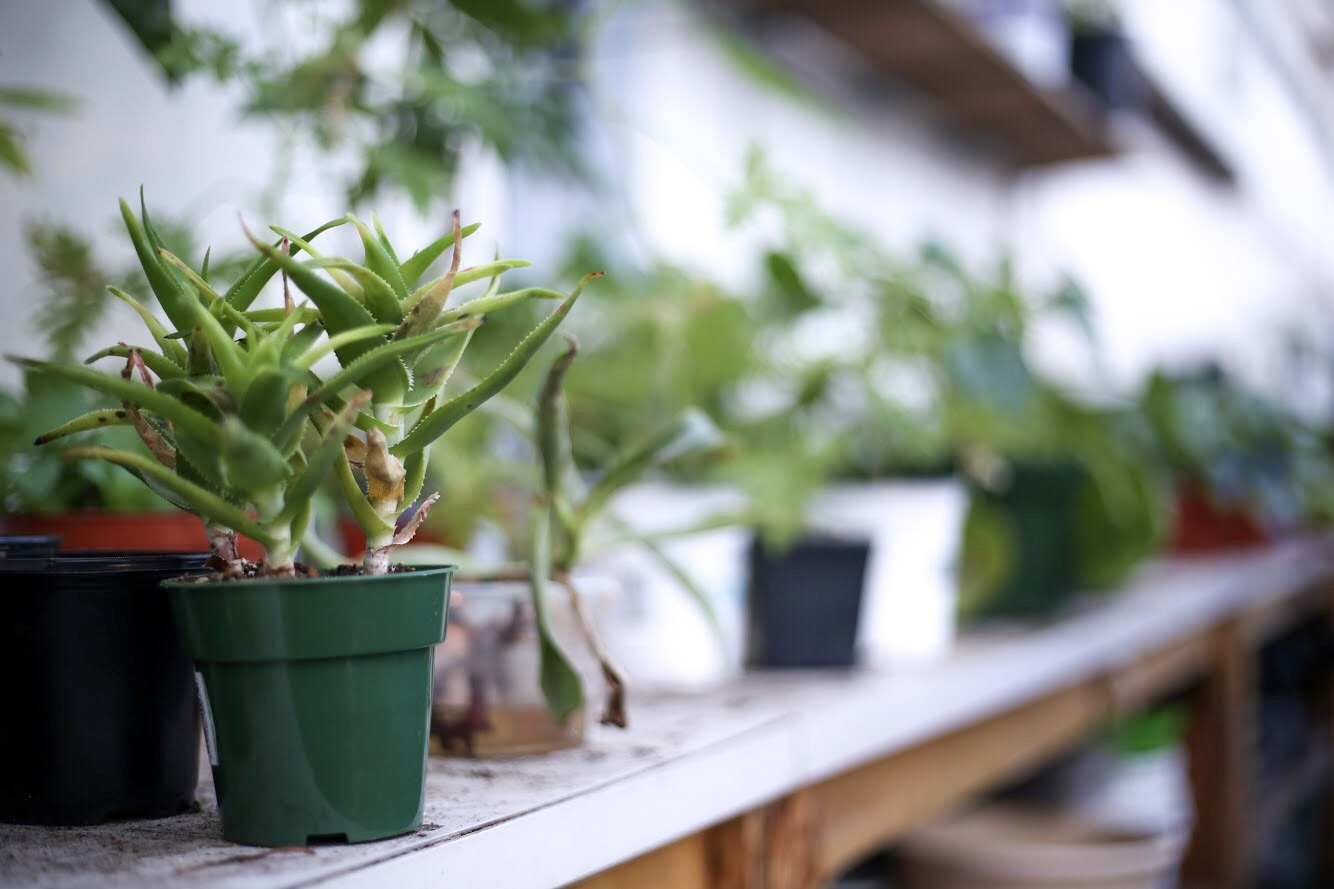Find the resources to start a small garden and optimize your growing space
Gardening is tough manual work, especially when you are living within the cityscape of Montreal. Surrounded by concrete and limited green-space, attempting to plant vegetables can be restraining. Last Wednesday, the Concordia Greenhouse offered a compromise for those who live the city life but still crave natural produce.
On Jan. 30, the “Grow Your Own Food Year-Round” event, led by Urban Homestead Montreal, gave a presentation about public resources and areas to harvest edible greens. Sheena Swirlz, coordinator for the organization, taught various tips and tricks to approach interior and exterior food cultivation.
On the 13th floor of the Hall building, Concordia students and Montreal residents were invited to discuss various methods to start their own small-space indoor and outdoor, year-round gardens. Surrounded by hanging foliage within the glass structure, Swirlz spoke about seasonal harvesting and explained the beneficial outcomes of gardening, when done effectively.
Swirlz delved into sprouting and microgreens, hydroponics, window farming, and more. While adapting to the seasons, gardening in the city can seem daunting: “I think people think that it’s simple […] but, in the beginning, there’s a lot of set-ups, a lot of research to optimize your growing systems,” Swirlz explained.
Swirlz highlighted that a garden can be personalized. “In my garden, I almost exclusively grow things that you can’t generally find. So, I’ll grow things like cucamelons, which are these little things that look like miniature watermelons, but they taste like cucumbers. They look like little mouth-watermelons. So adorable!”
When planting in the spring, whether indoors or outdoors, Swirlz recommends Swiss chard and kale or hearty herbs like parsley, oregano, and mint, all of which regrow every year. For Swirlz, Swiss chard and kale are the go-to vegetables “because they are super easy to grow, [and] they’re not prone to pests as much as other things, they’re extremely nutrient rich.”
Swirlz mentioned that during the spring season, people can be introduced to wild harvesting by getting involved with various Montreal organizations and plant shops that will take you on foraging walks. Neumark Design, Naughty Nettles Medicinals and Myco Boutique all offer plant-identifying workshops and activities. During these walks, you can forage for edibles like fiddleheads, morel mushrooms, dandelions and stinging nettles.
According to Swirlz, gardening can bring communities together, all while offering a self-reliant lifestyle. “It’s like knitting and baking. It’s to make people feel better. It does feel good to do things with our hands,” she said. “Gardening really connects us with plants, makes us feel like we’re part of nature again, and it makes people feel better.”
During the winter, growing mushrooms or germinating your own sprouts indoors are some of the most exciting and cost-effective ways to cultivate during the cold months.
Martha Martinez, a Concordia student and event attendee, thought the topic of mushrooms was the most interesting of Swirlz’s presentation. “It’s something that we eat a lot where I live with my family. We don’t buy shiitake every week. That is an expensive kind of mushroom.”
Swirlz enjoys planting indoors during her free time and prefers this cheap alternative compared to always shopping at grocery stores. “It is a way of saying, ‘No more capitalizing on food.’ Being able to feed your family and being able to have food on your table should not be a business,” she said.
Feature photo by Alex Hutchins
